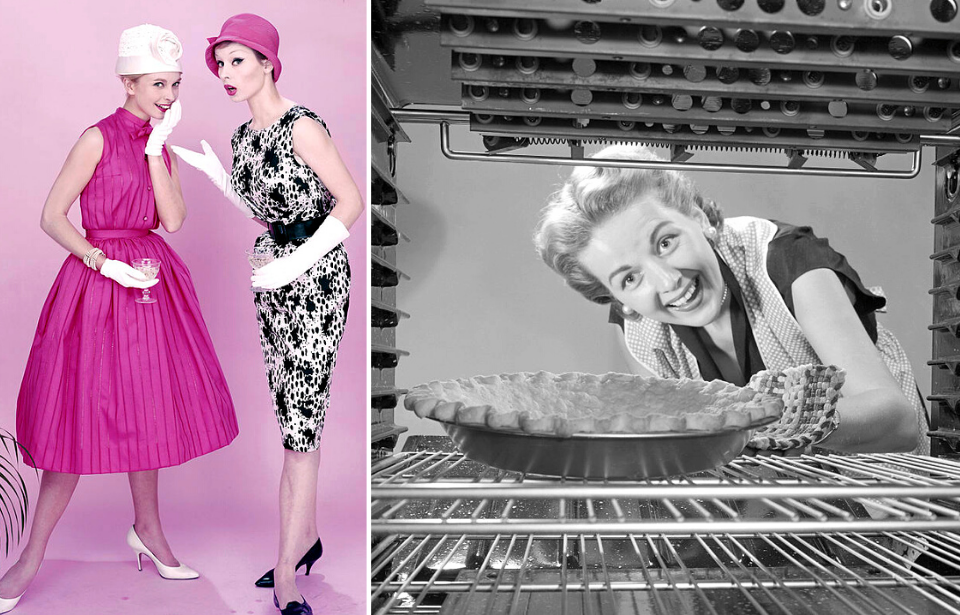It’s no secret women were treated differently in the 1950s than they are today, but have you ever stopped to consider some of the ridiculous rules they were made to follow? From not being allowed to swim while menstruating to ensuring dinner was always ready for when their husbands arrived home, here are just some of the unusual guidelines women were told to live by.
Don’t go swimming when you have “the curse”
One of the first signs a girl is entering puberty is beginning her monthly period. While there has been great strides in period equity in recent years, in the 1950s the topic was not discussed outside of a girl and her mother or sisters. As well, a lot of what they were taught came from books written by men who knew very little about the female body.

There were also some strange misconceptions about what a woman could and couldn’t do when on her period. For example, some people believed a girl couldn’t go swimming while menstruating, especially during the first two or three days. Why? They might catch a cold!
Be as feminine as possible if you want to find yourself a husband
In the 1950s, women were told the best way to find themselves a husband was to appear as feminine as possible! The less feminine they were, the more difficulty they’d have finding a man. Given it was seen as “abnormal” to be single, many took this advice to heart and dolled themselves up whenever they went out in public, in case they came across a potential partner.
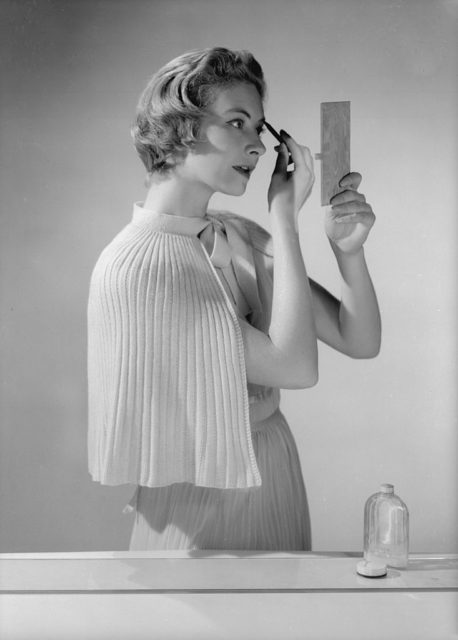
Among the questions women were told to ask themselves:
- Do you remember to appear dainty at all times?
- When dressing for a night out, do you avoid suits and other “mannish” clothing?
- Is your clothing – especially your gloves and shirt collar – spotless?
- Do you remember to always walk with a spring in your step?
- Are you sure to don jewelry and a drop of perfume before heading out on a date?
You can’t be late for a date, and don’t fret if your partner is
While some women might show up late for a date to not appear too eager, it was actually frowned upon to be anything but early for a night out with your partner. It was a courteous gesture to show up on time, because, as Joe Bonomo wrote in his 1954 book How to Find Your Man, if you wouldn’t want your boyfriend to show up late, then why should you be allowed?

This advice, however, appears to be one-sided. Bonomo adds that, if your partner is late, to “give him a chance to explain. If he is never on time, you’ll soon decide whether you want to be bothered with him… Or whether you’re so far gone for him that it’s part of his nature you’ll learn to put up with.”
The real question is, why couldn’t a man put up with his girlfriend’s occasional tardiness?
Memorize these ‘six simple’ rules
Speaking of Bonomo, he wrote that, to keep a man, a woman needed to follow “six simple” rules. If we knew it was that easy, we would have been following them all along!

The “simple” rules a woman should always follow are:
- “Be lovely to look at… At all times.” (Basically, never have a bad hair day.)
- “Have a ready smile. He may see it… Even though you haven’t noticed him yet.” (Wouldn’t your face hurt from constantly smiling?)
- “Budget your [time] to include Your Man… Whether you’ve met him yet or not.” (You can’t have time just for yourself!)
- “Budget your energy… In the same way.” (You can’t appear tired when your man is around.)
- “When you meet him… Charm him with sincerity and your own natural sweetness… Accented with care for your appearance and disposition.”
- “Wear a lot of makeup, wash constantly and worry about your neck.” (Because a bad-looking neck is a dealbreaker?)
Make the evening his
You’ve found yourself a husband – congratulations! Now, you need to switch your mindset from trying to find the love of your life to ensuring you never lose him. One way women were told to do this in the 1950s was to make the evening his. After a long day at work, he doesn’t want to deal with complaints or trivial things; he wants to relax and unwind!
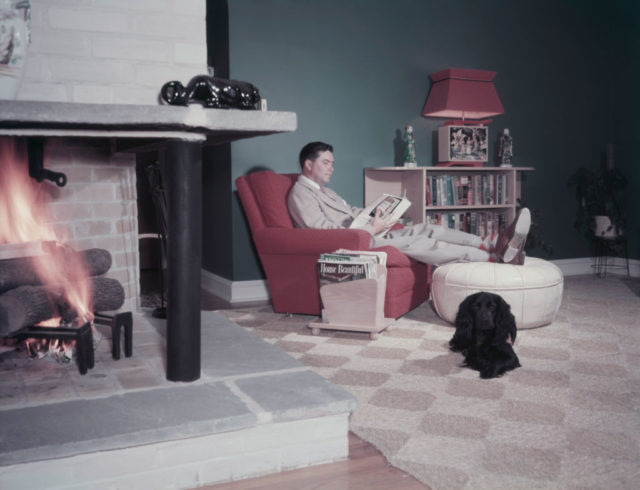
To ensure their husbands were able to enjoy the evening, women were told to keep any complaints to themselves, including those about them hardly spending any time at home. Since all women did day in and day out was relax (we’re rolling our eyes, too), the evening was the time for them to allow their husbands to experience the same luxury.
Make sure you’re dolled up for your husband
Along the same lines as always appearing feminine is to ensure you’ve freshened yourself up in preparation for your husband’s return. After a day at work, your husband may need a pick-me-up, and what better way than to come home to a gorgeous wife who’s dolled up and ready to go (even if she’ll likely spend the entire evening at home).
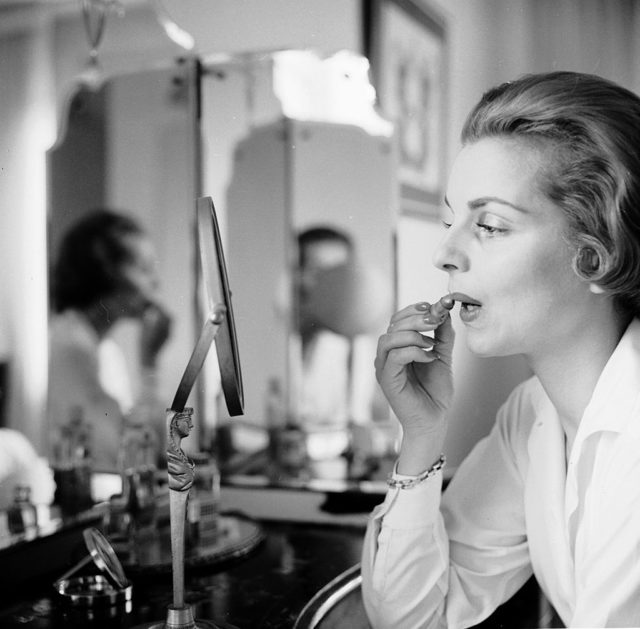
It was recommended women take around 15-20 minutes to rest, touch up their makeup and fix their hair to ensure they looked refreshed upon their husbands’ return home. Why would they want to come home to a weary-looking wife when they’ve had to look at their coworkers all day long?!
Have dinner ready – and make sure it’s good!
Another way to ensure your husband enjoyed his evening was to have dinner ready for him. In order to be a good wife, it was especially important to plan ahead and prepare a dinner he enjoyed, so he felt welcomed after a tough day at work.
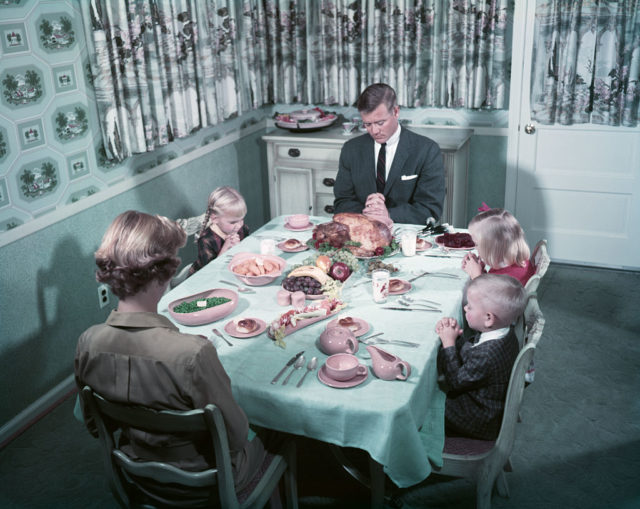
As Dr. Nancy O’Reilly writes, “Plan ahead, even the night before, to have a delicious meal ready on time. This is a way of letting him know that you have been thinking of him and are concerned about his needs. Most men are hungry when they come home and the prospect of a good meal is part of the warm welcome needed.”
Minimize noise – and don’t you dare talk right when he returns home
After a long day of work, the last thing your husband wants to deal with is a loud home. That’s why women in the 1950s were taught to keep their homes as quiet as possible in the evening. This meant finishing the washing and vacuuming during the day, and ensuring the children didn’t throw any tantrums.
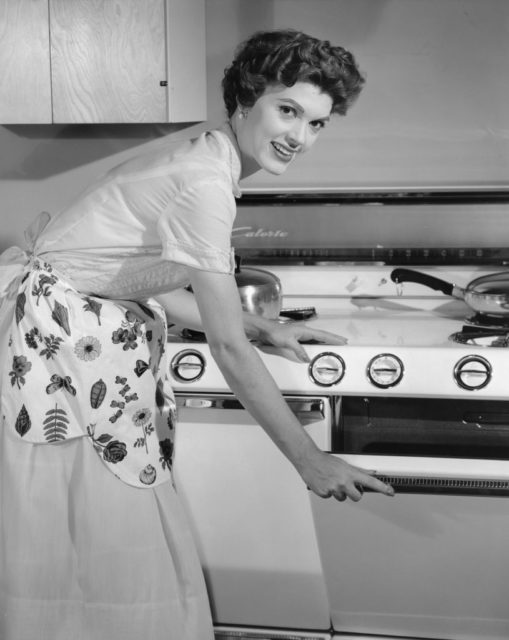
Women were also told to keep their opinions to themselves and not bombard their husbands with “unnecessary” chatter. Instead, they were encouraged to greet them at the front door with a smile… Remember, one of the “six simple” rules was to always have a smile on your face – you never know when a man will be watching!
Know your place
A final piece of advice women in the 1950s were given: know your place. Remember, this was a time when men were considered the more dominant sex, and it was important everyone understood that – a woman’s role was in the kitchen as a housewife.
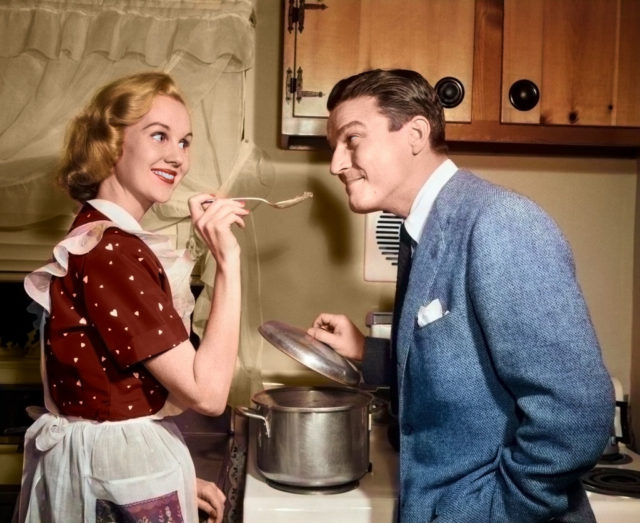
More from us: The Surprising Origin of Safeway Grocery Stores
Women were told to keep life as easy for their men as possible. Along with preparing dinner and keeping the house organized, they were expected to keep quiet about important issues, never question authority or opinions, and ensure home life was simple and easy… We’re glad times have changed!
